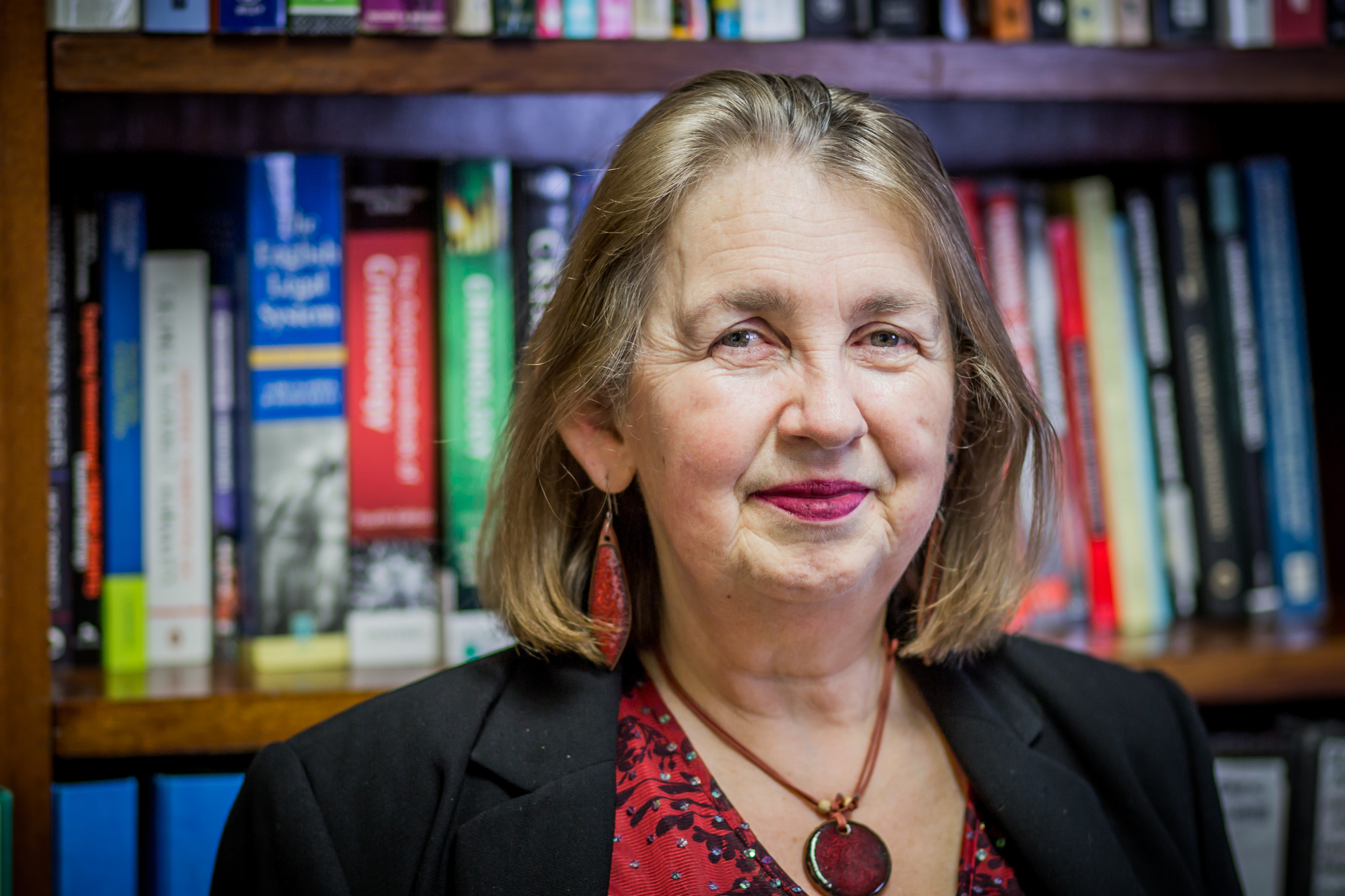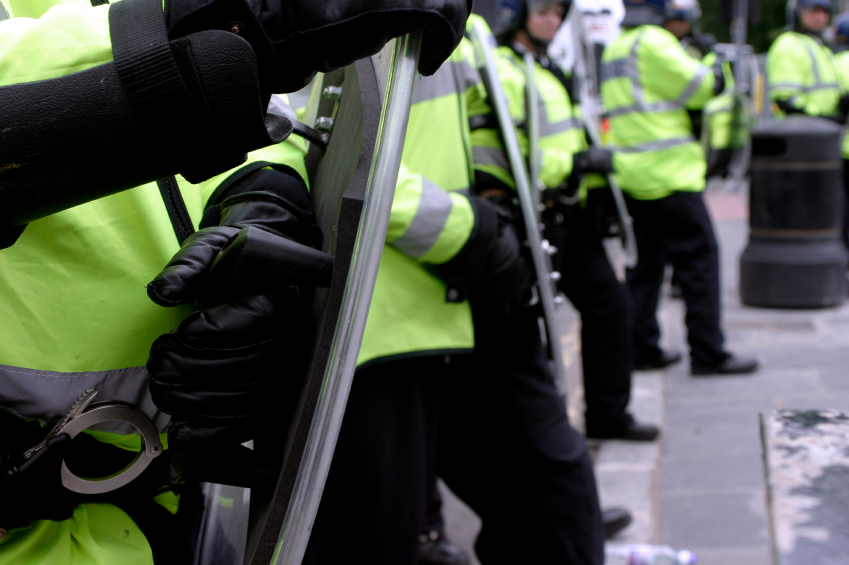Peace is the bigger picture
How a love of languages led to a passion for social justice - the story of Dr Fiona Macaulay
In a world dominated by politics and the polarising effects of social media, where opinion often trumps fact, the ability to see ‘the bigger picture’ has never been more important. As the US - and the world - prepares to enter a new political era, a renaissance in the desire for a deeper understanding of law, government and public policy beckons.
If you have ever hankered after a deeper understanding of world politics, why wars are fought, why governments adopt certain policies, why some groups of people experience inequality and persecution and, ultimately how you, as an individual, can affect change in these areas, then the University of Bradford’s Peace Studies and International Development programme provides a compass with which to navigate this intellectual, ethical and practical terrain.
As Senior Lecturer in Peace Studies in the School of Social Sciences (Faculty of Management, Law and Social Sciences) Dr Fiona Macaulay sees herself not just as teacher and mentor but also as a changemaker, a peacemaker and, when necessary, a troublemaker, in the sense of challenging unjust situations. Alongside her day job, she also runs PeaceJam in the UK, which works with 14 Nobel Peace Prize winners to inspire young people to social action, through peace education. PeaceJam was founded in 1996 in the USA, and Dr Macaulay brought it to the UK in 2006, where it ran from the Peace Studies department.

Teenage activism
Born in Northern Ireland to Scottish parents Dr Macaulay grew up near Cambridge and lived in Oxford for 25 years, taking up her position at the University of Bradford in 2005 and now admitting she “couldn’t contemplate moving somewhere flat and featureless”.
As a child, she preferred curling up on the sofa with a good book to sports. She nurtured a talent for languages and is fluent in Portuguese (and is often mistaken for a Brazilian) and Spanish and says she is a bit rusty in the French and German she studied as an undergraduate at the University of Oxford. “I did modern languages because I was good at it,” she says, spending a year in Berlin during her degree. She loves to travel and keeps in touch with her many former students who are scattered around the globe - bumping into one in a supermarket in Tajikistan.
She became involved in activism at university but was already reading feminist literature at 17. “My mother was a primary school teacher and Tory Party activist, so I was primed to be active, although my views were different. I was reading a lot of social sciences alongside my literature degree. I set up the first feminist magazine in Oxford and Greenham Common was just down the road, so I got involved in the anti-nuclear weapons protests there. I was then very lucky to get a graduate scholarship from Rotary International.”
That took her to the University of Massachusetts in the USA, where she spent a year on a Women's Studies course. She also became interested in Central America. “It was the 1980s, there were civil wars in Central America and counterinsurgency funded by the Reagan administration. The people I met were very involved in protesting against that. By the end of that year, I thought, I’m going to Latin America. So, rather than backpacking around Bolivia, which was the original plan, I went to Central America to see what a civil war looked like, much to the alarm of my mother.”
A serendipitous job offer led to her teaching English at the National Autonomous University of Nicaragua in León, which had recently twinned with Oxford. After leaving Nicaragua she engaged in human rights work in El Salvador and Guatemala. When she returned to the UK, she completed a Master’s degree in Latin American Studies at the University of Oxford and then a doctorate in politics, focussing on the relationship between women's representation, political parties, women's movements and public policy in Brazil and Chile. The week after handing in her doctorate, she started her “dream job”, joining the International Secretariat of Amnesty International as their Brazil researcher.
Brazil
The role entailed frequent trips to Brazil, visiting prisons, working with human rights activists and examining police violence, which she says revealed “a different side” to the country, one which is perhaps best outlined by its frightening murder rates. One in ten people murdered in the world is Brazilian, as the police operate a shoot-to-kill policy in certain areas.
After taking a maternity break to have her son, she took up a joint appointment (2000-2005), at the Institute of Latin American Studies, at the University of London, lecturing on gender and development in Latin America, and as Researcher at the Centre for Brazilian Studies at the University of Oxford, coordinating their human rights programme, supported by the Ford Foundation.

Aerial view of Brazil and Christ the Redeemer
She says: “Brazil has a very high level of violence and the third largest prison system in the world. If you are young, black and male, you have a heightened chance of being killed by the police. The question is how do you bring about meaningful change and how do institutions react to pressure to reform? So, one area of my research is showing what positive changes have occurred and why.”
One such societal shift came in 2006. The Maria da Penha Law defined the crime of domestic violence against women for the first time and resulted a number of policy responses, such as special police patrols, electronic tagging of offenders and special courts for domestic violence.
However, she says the police still need to train their officers better in how to handle domestic violence situations. Dr Macaulay has just written and launched a 120-page training manual (in Portuguese) on gender-based violence for use by Brazilian police instructors to use in police academies. This was produced and distributed by the Brazilian Forum on Public Security, with which she works closely as a consultant, and was funded by the Avon Foundation, the British Embassy and Uber. Additionally, she has also just finishing writing a book on how Brazilian society and criminal justice agencies have been developing effective policies and practices to tackle the problem of feminicide (the murder of women for misogynistic reasons).
Extensive research
Her next research project, funded by the British Academy/Leverhulme, also concerns the Brazilian police and examines why so many police officers have been running for elected political office and what impact this migration may have on law enforcement policy. Dr Macaulay has published over 50 research articles, book chapters, knowledge transfer reports, (including in Spanish and Portuguese) and two books, covering her research interests on gender, criminal justice reform and politics in Brazil and Latin America.
So, how does this fit into Peace Studies and International Development?

‘Our job is to show students the bigger picture’
“People don’t understand what Peace Studies is at first. By its very nature, it’s interdisciplinary because you are asking not just why societies break down and become violent but also why, most of the time, they are peaceful… and how we maintain that. Differences of opinion are inevitable and if you tried to eradicate them, you would be in an authoritarian society, so how do you manage to construct a society that is tolerant and able to deal with differences in peaceful ways? We give students a very broad grounding in the social and political dynamics of conflict and peaceful relations from the personal level right up to international level. It’s about getting them to see the bigger picture.”
Seeing the bigger picture and making connections can explain why the USA engaged in wars in Central America under the Reagan administration (following its humiliating defeat in Vietnam), how the Gulf War came about, why Donald Trump or Joe Biden came to power, and how economic policies adopted in the West in the 1980s are still affecting people today. Falling between the cracks, as ever, are ordinary people from all walks of life together. It is the most vulnerable and marginalised groups that are often worst affected and stigmatised when government policies and economies fail.
Be curious and ask questions
The ability to understand the interrelated geo-political forces that shape our lives, through laws, trade, wars, economic policy and so on is the essence of Peace Studies, which offers a wide range of career prospects, from advising on government policy, local authority administration, community work, teaching, law, diplomacy, conflict resolution, even the armed forces and security services.
Dr Macaulay is passionate about the subject and its import. “We need to be curious and always question received wisdom and orthodoxy. None of us can have a fully objective view of any society, even our own. What we can do is work in collaboration with a degree of modesty with people on the ground, who have access to data, ensure key messages are given to policy makers when they do engage, and keep working for a fairer, more peaceful and more sustainable world.”
